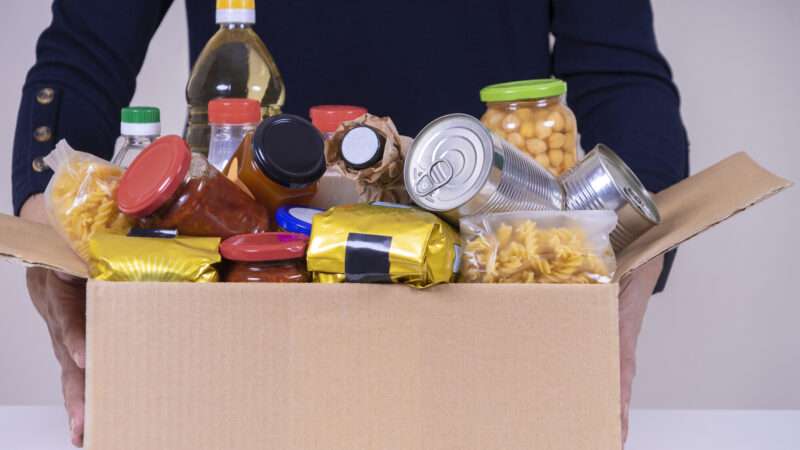
Oregon State University has a beautiful campus, but the surrounding community in Corvallis, Oregon, struggles with pockets of poverty and homelessness. Amy Crevola, a clinical social worker who lives in a lower-income neighborhood near campus, decided to help in 2021.
She collected donated items and arranged them in her carport like a garage sale, except everything was free. The inventory included clothes, personal care items, baby supplies, household goods, and fresh sandwiches in a fridge. In the summer, a cooling station provides hats, sunscreen, and bottled water. And in the winter, a warming station offers socks, mittens, and hot cocoa.
Neighbors generally support the makeshift charity, and some volunteer to assist. As word spread, about 10 to 20 people started coming each day to take items and sometimes just to chat.
It's a private solution to a public problem. And zoning officials don't appreciate it.
The tension comes from competing philosophies about how best to address poverty and homelessness. The city's approach is to hide anything that threatens its brand as a top 10 college town and naturalist's paradise. Officers conduct monthly sweeps of encampments, pushing the indigent population elsewhere.
Funding for other approaches is limited. The city shut down its men's homeless shelter in June due to lack of resources, and other shelters face budget cuts and layoffs. Crevola's effort, by contrast, costs taxpayers nothing. But it puts an uncomfortable truth on full display.
So on June 9, armed with a single complaint, the zoning police issued a notice of violation that ordered Crevola to shut down within 30 days.
Hoping for a compromise, she offered to scale back operations. The city declined. Officials told her she could host six garage sales each calendar year, lasting no longer than two days each. Or she could convert her carport into a garage and hide her services behind a wall—a change that could cost $20,000 or more.
Both options come from Corvallis' code for home-based businesses. But Crevola does not operate a home-based business. The people who visit are guests, not customers, and no money changes hands.
The city doesn't care. It says the code allows people to use their property only for a list of predefined activities. There is no room for innovation.
Zoning police use similar tactics nationwide to restrict activities that some people find unsightly. Our public interest law firm, the Institute for Justice, has seen just about everything.
Regulators blocked Kathy Hay from sharing food with her neighbors using a publicly accessible pantry behind her home in Asotin County, Washington. Regulators blocked Kimberly Dunckel from hosting small classes at her sanctuary for abused and disabled farm animals in Winston-Salem, North Carolina. And regulators blocked a charity in Calhoun, Georgia, from building affordable homes on its land because city leaders didn't want to attract "riffraff."
Sometimes parks are off-limits too. Officers arrested grandmother Norma Thornton for serving meals to the homeless on public land in Bullhead City, Arizona. Some zoning departments even criminalize kindness in commercial districts. Code enforcers tried to block a homeless shelter in a donated office building in North Wilkesboro, North Carolina.
Besides violating property rights, these crackdowns are short-sighted. Poverty and homelessness are complex problems. Government officials should welcome assistance wherever they can find it.
They should treat people like Crevola as allies, not public nuisances.
The post Zoning Police Criminalize Kindness in Oregon appeared first on Reason.com.







